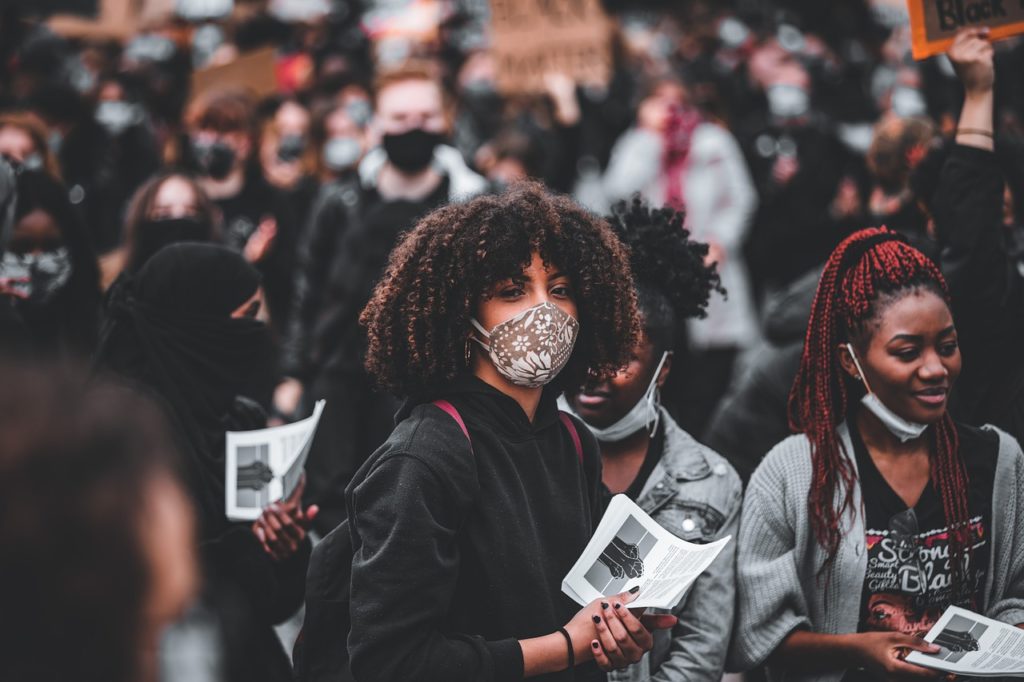Sometimes folks who are highly empathetic are accused of feeling “too much.” But the fact is, empathy is crucial to our everyday functioning.
There are, of course, people with different diagnoses (such as those on the far ends of the autism spectrum) that may have a difficult time with empathy. And that’s totally legit.
But for the rest of us, empathy is achievable at some level or another.
So What Exactly Is Empathy?

There is often confusion around the specific definition of empathy. Many people confuse it with compassion or sympathy.
The easiest way to explain empathy is as the ability to step into another’s shoes to fully grasp their experience. You’re able to relate to their feelings and perspectives and can allow these to guide your actions.
By contrast, compassion allows you to connect with the feeling aspect without investing in understanding perspective. And sympathy is purely feeling sorry for someone else without any comprehension of their feelings or perspectives. In both cases, you may be able to help the ailing person or people, but there is a disconnect.
Empathy is about deep connection. It asks us to form meaningful relationships where we can be truly in touch with each another. This happens by mirroring one another’s behaviors. If someone we love is in pain, we allow ourselves to experience this pain as well. There is no judgment, only consolation. This is regardless of whether we agree with their perspective.
Why Empathy Is Crucial Now
Research has shown that caring for others not only makes the world a more positive place, but it benefits your health and happiness as well. This is even more relevant now, as the pandemic has turned many of our lives upside down and left many looking for a “normal” that no longer exists.

In fact, a global study found that 42% of people have experienced a decline in mental health since the beginning of the pandemic. There is a huge spike in stress, anxiety, and emotional exhaustion. People report much higher levels of sadness, irritability, trouble concentrating, and inability to complete tasks in a timely manner.
Furthermore, as a result of the higher stress levels, sleep has become compromised. This, in turn, affects performance at work. It also negatively impacts relationships – both personal and professional. The end result of this higher stress and lower performance is a decreased likeliness to help others. It’s the old “put the oxygen mask on yourself first before you put it on your child” paradox.
Yep. The pandemic has currently left us in a world of reduced performance and collaboration, as well as deteriorating relational experiences. Such high levels of stress have made us combative – which only worsens the situation.
If we could be empathetic instead, there would be far more healing.
The Positive Effects of Empathy
When times are dark, empathy is a remarkable antidote. A new study of 889 employees at a large company demonstrates this.
Under the tutelage of empathetic leaders, 61% of employees reported the ability to be innovative. Only 13% of employees felt this with less empathetic leaders. In addition, 76% of people who experienced empathy from their leaders felt engaged with their work, while for those who experienced less empathy, the number was a smaller 32%.
In empathetic led companies, 50% of people considered their workplace inclusive. Only 17% of employees at companies with less empathetic leaders said the same. From employee retention to workplace satisfaction on beyond, the numbers continue in that same direction.
Exploring Empathy Through Yoga
While on paper, gaining empathy may sound easy. If it’s part of your default wiring, it probably is. For the rest of us though, it requires some effort. But it’s some of the most worthwhile work you’ll do. So then how do you go about becoming more empathetic?

Yoga is one of the most effective ways. And with the advent of companies offering mobile yoga classes, it’s even something you can incorporate into your work life.
The yoga practice encourages us to develop an inner connection. It teaches us to continually look inward and become introspective so that we can better understand ourselves. This higher level of self-study then allows us to connect more deeply to others. When we learn to be kind to ourselves, it naturally extends out to being kind to others.
Each time we come to the mat, it’s with an awareness that we’ve arrived with our own set of experiences and feelings that are like nobody else’s. This, in turn, reminds us that we never know anybody else’s full story. That what could be your worst day may well be someone’s best day. So it’s important to be empathetic.
At the core of it, the yoga practice teaches us to move away from expectation. It asks us to honor where we are in the moment so we can do the same for others. And that where any of us is changes from day to day, hour to hour, even minute to minute. When we’re able to be honest with ourselves and others, we can build the aforementioned meaningful relationships with ease.
In addition, the meditative aspects of the practice are a powerful way to build empathy towards ourselves and others. In particular, practicing meditation that focuses on gratitude can cultivate more empathy.
Want to Embrace the Power of Empathy?
Clearly, empathy is crucial right now in this era where so many of us feel pitted against one another. To close that gap, we all need to strengthen our ability to step into another’s shoes.
So if you’d like to experience how yoga, meditation, and other mindful practices can increase your ability to be empathetic, contact us today.
We come directly to your company, organization, or school so you can offer these amazing practices to everyone in your workplace.



